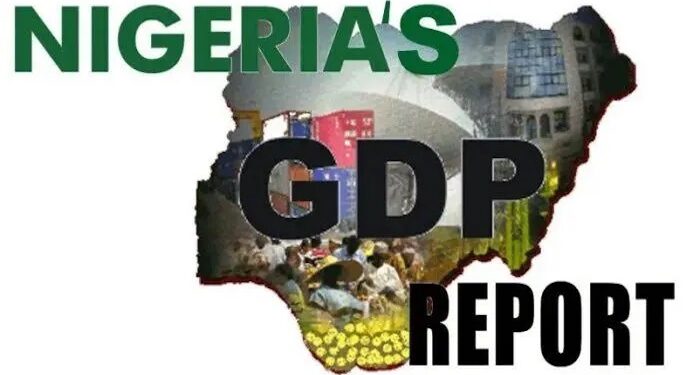The federal government has defended its ongoing efforts to rebase Nigeria’s Gross Domestic Product (GDP), asserting that the move will help improve the accuracy of the country’s economic data and potentially boost investor confidence. Dr. Tope Fasua, Special Adviser to President Bola Tinubu on Economic Affairs, made this assertion during a presentation at the Lagos Chamber of Commerce and Industry’s (LCCI) “2025 Economic Review and Outlook Conference” held on Thursday.
Fasua explained that the rebasing, which is expected to update the economic indicators, is necessary to reflect the growing and evolving sectors of Nigeria’s economy. He argued that the exercise, long overdue since the last rebase in 2014, will allow for a more accurate representation of the economy, especially in light of Nigeria’s ambitions to reach a $1 trillion GDP.
Key Insights on GDP Rebasing:
- Improved Data and Projections: Fasua noted that the ongoing reforms under President Tinubu’s administration, including efforts to improve non-oil exports and foster economic growth, will reflect more positively in Nigeria’s GDP figures once the rebasing is completed. “Our numbers will look better when that rebasing happens,” Fasua said, adding that the goal of a $1 trillion GDP is still attainable, even if Nigeria falls short of the target.
- A New Economic Landscape: Fasua highlighted that Nigeria’s economy has changed significantly since the last rebasing, with sectors like entertainment, particularly music, emerging as major contributors. He emphasized that Nigeria’s growth rate, particularly in its population, necessitates rapid economic expansion. Fasua added, “We need to accelerate our growth… If we want to achieve $1 trillion, we must target double-digit GDP growth.”
- Monetary Policy Impacts: Fasua also revealed that the Central Bank of Nigeria (CBN) has postponed its January Monetary Policy Committee (MPC) meeting to February, in anticipation of the effects of the GDP rebasing on national economic projections.
- Exports and Currency Devaluation: Fasua attributed the devaluation of the Naira to improved non-oil exports, although he expressed doubts over whether these earnings were being repatriated into Nigeria. He highlighted the fact that neighboring countries, including Niger, Chad, and Benin, were purchasing Nigerian agricultural products, such as soybeans, and that less than 5% of Nigeria’s entertainment industry earnings from abroad returned to the country.
- Behavioral Changes: The adviser also noted that the economic reforms being implemented have sparked significant changes in business and consumer behavior. However, he stressed that Nigeria must remain committed to these reforms to achieve the desired outcomes.
Implications for Tax and Economic Growth: Chairman of the Presidential Committee on Fiscal Policy and Tax Reform, Mr. Taiwo Oyedele, added to the discussion with a recorded address, focusing on the potential effects of rebasing the GDP on Nigeria’s tax-to-GDP ratio. Oyedele explained that while there has been debate over the inclusion of the informal or “black economy” in GDP calculations, rebasing the economy, whether or not this sector is included, would positively impact the country’s attractiveness to investors. He emphasized that a larger economy, coupled with higher per capita income, would make Nigeria a more attractive destination for investment.
Sectoral Shifts and Realignment: Dr. Biodun Adedipe, Founder and CEO of BAA Consult, underscored the importance of rebasing as a means to align economic data with current realities. He pointed out that over the last decade, some sectors have seen significant growth, while others have diminished. Adedipe also noted that if Nigeria had not experienced multiple devaluations of its currency, its economy could have surpassed the $2 trillion mark today. He suggested that the rebasing would not only reflect this reality but also help recognize the true size and potential of Nigeria’s economy.
Conclusion: While the rebasing of Nigeria’s GDP has stirred debate, the federal government continues to defend it as a necessary step for economic transparency and growth. As the country seeks to boost its GDP towards the $1 trillion target, the new figures are expected to better represent the dynamic shifts in sectors like entertainment, agriculture, and non-oil exports. However, experts agree that Nigeria’s growth will require sustained reforms, a focus on diversifying the economy, and an unwavering commitment to fiscal discipline.


